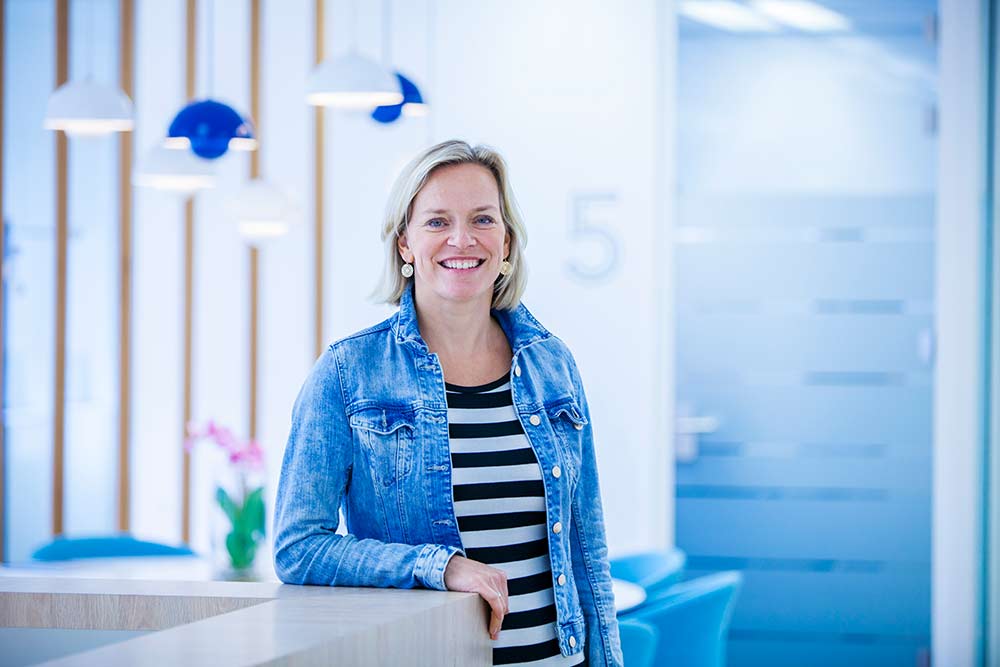
ESMO: ‘Cancer survivorship requires collaboration at European level’
Cancer survivorship should be a topic addressed at the European level al well as the national one, says the European Society for Medical Oncology (ESMO). Not only because everyone in Europe should have access to the best possible care, but also because there is a lot that European countries can learn from each other. Dr. Lonneke van de Poll-Franse (IKNL/NKI-AVL/Tilburg University) is one of the experts within ESMO involved with cancer and quality of life: ‘We want to realise good quality of care for everyone who lives with or after cancer, but healthcare is organised differently everywhere. Therefore, how to best organise health care will be different everywhere in Europe, but we can collaborate and learn from each other.’
Aspects cancer survivorship care
ESMO addresses the need for European collaboration in cancer survivorship care in an article published in the Annals of Oncology. The authors, Van de Poll-Franse among them, identified five main aspects of cancer survivorship care: the physical effects of cancer, including chronic medical conditions; psychological effects; social, work and financial effects; surveillance for recurrences and second cancers; and cancer prevention and overall health and well-being promotion. How these aspects take shape, however, is dependent on how health care is organised locally.
Local solutions for shared problems
‘In the Netherlands, for example, the Comprehensive Care Agreement (Integraal Zorgakkoord, IZA) and the focus on appropriate care will impact cancer survivorship care significantly. Aspects of the IZA are also visible in the ESMO article,’ according to Van de Poll-Franse. ‘It’s good to know that we’re trying to achieve in the Netherlands isn’t unique or detached from what is happening in the rest of Europe, but how we are achieving things differs dependent on local folklore.’ Van de Poll-Franse names follow-up care as an example. ‘Follow-up care is less and less the purview of the medical specialist; it is no longer tenable for specialists to do all follow-up, but often also not necessary. In the Netherlands, follow-up care is shifting to primary care professionals. Many countries don’t have primary care with a gatekeeping function (or don’t have primary care at all) and patients can see a specialist directly. However, they do have a lot of nurses or nurse practitioners who are able to take on the follow-up care instead.’
European collaboration in cancer survivorship makes sense
Why would we collaborate on a European level, if everything works differently on a local level? ‘In spite of the fact that health care systems are organised differently, we often encounter the same problems. The problems presented by the ageing of the population and shortage of human resources are not unique to the Netherlands,’ answers Van de Poll-Franse. ‘Collaboration provides the opportunity to learn from each other. In the Netherlands, for instance, we’re already quite far in digitalising health care in comparison to the South of Europe, but there’s still much we can learn from the Scandinavian countries.’ In the article in Annals of Oncology, Van de Poll-Franse and her co-authors describe three ways to improve the organisation of cancer survivorship care: creating creation of tools to facilitate implementation of coordinated care, survivorship educational programs for health care teams and patients; and creating focused and shared European recommendations. Van de Poll-Franse: ‘It’s important to establish with each other what standard of care we want to achieve.’
European data invaluable
European collaboration in research offers many opportunities as well. ‘To truly understand the needs of people who live with or after cancer, but also to map the biological aspects related to long term effects, you need real world data gathered over a long period of time. If we can gather those on a European level, we’re creating a database of immeasurable value,’ says Van de Poll-Franse. ‘IKNL has been working on gathering real world data nationally for a long time, and in recent years we’ve become involved with gathering real world data internationally as well. Developments surrounding connecting databases like the Netherlands Cancer Registry to other data sources will only add more value to the data available to us,’ says Van de Poll-Franse. She also sees a lot of potential in research cohorts. ‘Cohorts like the Dutch POCOP [oesophagal-gastric cancer], PACAP [pancreatic cancer], and PLCRC [colorectal cancer] are necessary to gain insights in which patient needs what care. Which patients have a risk of recurrence or developing long term effects? What care is needed where? These are of course also questions central to the topic of appropriate care.’
Good quality of care, everywhere in Europe
‘To summarize: at the European level certain problems and trends in healthcare are visible which need to be addressed. How to address them is dependent on the local health care system,’ according to Van de Poll-Franse. ‘In this, it is important to look at standards of care together, to learn from each other, to collaborate in research and prioritise together what research to conduct. Unfortunately, there are still great differences in health care outcomes between European countries, but eventually, everybody should be able to access good health care, no matter where they live. That is what we need to work towards, together.’
More information
Read the article in Annals of Oncology:
- Vaz-Luis, I., Masiero, M., Cavaletti, G., Cervantes, A., Chlebowski, R. T., Curigliano, G., ... & Pravettoni, G. (2022). ESMO Expert Consensus Statements on Cancer Survivorship: Promoting high-quality survivorship care and research in Europe. Annals of Oncology, 33(11), 1119-1133